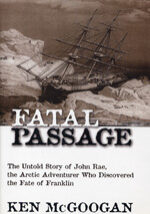In 701 B.C. the Assyrian empire was in its ascendancy. It had already vanquished the kingdom of Israel to the north including the capital at Samaria. It then prepared an assault on Judah and its capital at Jerusalem.
But in one of those significant events that changes the course of world history, Assyria was repelled. Jerusalem was saved until 586 B.C. when the Babylonians sacked the city, forcing its leadership class into exile.
Henry Aubin, in a major feat of scholarship, determines that Jerusalem was aided by a Kushite army from Africa which had marched northeast from the Nile valley. While the Bible attributes the Assyrian retreat to an angel and secular commentators cite pestilence, Aubin, in a meticulously documented work, demonstrates that an alliance with the African nation of Kush bolstered Jerusalem’s defences.
Kush, also known as Nubia, was located in what is now southern Egypt and northern Sudan. A monarchy that existed for more than 1000 years, from 900 B.C. to A.D. 350, Kushites held sway over Egypt from 712 B.C. to about 660 B.C. Of Egypt’s 31 dynasties, this, the 25th Dynasty, is the only one that all scholars agree, was black.
The commander of the Kushite expeditionary force was Taharqa (or as the Bible calls him Tirhakah). This Kushite prince, who had his own interests in halting Assyrian expansion, likely caught the aggressors by surprise as they prepared their siege of Jerusalem.
Aubin offers a thrilling military history and a stirring political analysis of the ancient world. He also sees the event as influential over the centuries.
The Kushite rescue of the Hebrew kingdom of Judah enabled the fragile, war-ravaged state to endure, to nurse itself back to economic and demographic health, and allowed the Hebrew religion, Yahwism, to evolve within the next several centuries into Judaism. Thus emerged the monotheistic trunk supporting Christianity and Islam.

“In Ken McGoogan’s artful telling, John Rae emerges from the shadows to take his place among the most intriguing of the 19th century arctic explorers. This is delightful reading.â€
Andrea Barrett
Author of The Voyage of the NarwhalAwards:
The Drainie-Taylor
Biography Prize
The Lila Common Award for Canadian History
The Grant MacEwan
Author’s Award
The Christopher Award
Carroll & Graf USA 2002
Bantam Press UK 2002
HarperCollins Canada 2001
Film PTV
Fatal Passage
The Arctic Adventurer Time Forgot
In May 1854, John Rae, a young Scottish doctor, achieved the goal dozens of Arctic explorers had attempted and failed. He discovered the key link in the Northwest Passage, and he learned the shocking truth of cannibalism among the starving crew of the expedition led by Sir John Franklin. Rae’s heroic achievements were almost wiped from history by Franklin’s widow who enlisted Charles Dickens in her campaign against him. This is an amazing tale of bravery in the wilderness and treachery in the salon. In 2009 Fatal Passage was turned into an acclaimed documentary, Passage, for the BBC and History Channel.